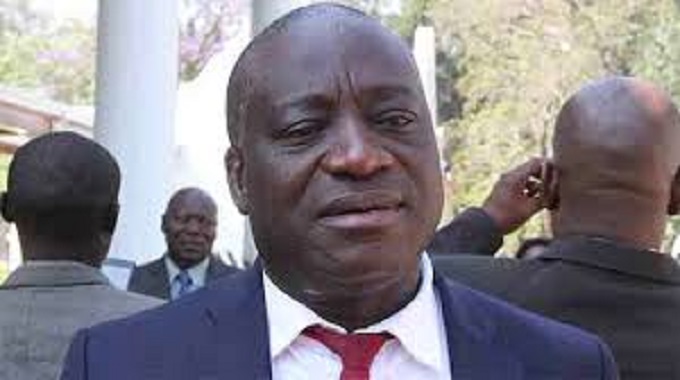Renewed hope for Zim @41

Leslie Chimbama
ZIMBABWE commemorated its 41st Independence anniversary on April 18, 2021 amid renewed hope that the country’s economy could be finally turning a corner after years of stagnation and a drawn-out brawl with Western countries over the Land Reform Programme.
President Emmerson Mnangagwa has been on a drive to change the fortunes of the country and despite being hamstrung by the Covid-19 pandemic, Zimbabwe has made significant progress in public healthcare, among other critical sectors.
The good rains of the past summer season have also added to the feel-good factor in the country. Zimbabwe expects to harvest 2,8 million tonnes of maize against annual national requirements of about two million tonnes.
That is not all.
The country expects to reach the 200 million kilogrammes mark in the ongoing tobacco selling season, which would generate US$800 million. This is up from the US$450 million that was earned from tobacco last year.
Anchoring the economic revival is the mining sector, where several mines are reopening and huge investments have been made in new projects.
President Mnangagwa has set a target of achieving a US$8,2 billion agriculture value economy and a US$12 billion mining value chain by 2023.
“Examples of progress to date are the US$4,2 billion Great Dyke Investments Platinum Mine already under construction,” Finance and Economic Development Minister Professor Mthuli Ncube highlighted ahead of Independence Day. “There is also the US$4 billion Karo Resources Mhondoro-Ngezi Platinum project ahead of schedule. Then the Arcadia Lithium Mine being developed and new coal mines opened.”
But it is the spirited fight against Covid-19 that has won Zimbabwe plaudits across the board.
The country has one of the highest vaccination rates in Africa, and last week President Mnangagwa tweeted: “Zimbabwe’s #Covid-19 vaccination programme is working! Zimbabwe has the 3rd highest rate of vaccinations in Sadc and 8th highest in Africa as a share of the population. We cannot lose this momentum — if you are eligible, I urge you all to get your jab.”
Fact-checking organisation Zimfact has confirmed that Zimbabwe has one of the highest vaccination rates on the continent.
“Statistics compiled from official sources by open data portal Our World in Data show that, as of April 11, 2021, 1,3 percent of Zimbabwe’s population had been vaccinated against Covid-19, giving the country the third highest inoculation rate in the southern African region, behind Seychelles with a continent-leading 65,6 percent and Eswatini, with 1,75 percent,” Zimfact said last week.
“On a continental basis, Zimbabwe was indeed in eighth position, behind Seychelles, Morocco (12,12 percent), Sao Tome & Principe (4,44 percent), Rwanda (2,69 percent), Ghana (2,26 percent), Senegal (2,05 percent) and Eswatini.
“Zimbabwe’s vaccination rate is currently ahead of countries such as Tunisia (1,21 percent), Malawi (1,07 percent), Togo (one percent), Equatorial Guinea (0,79 percent), Kenya (0,78 percent), Angola (0,75 percent), Botswana (0,55 percent) and South Africa (0,49 percent).”
With such statistics, the Independence Day celebrations were appropriately themed “Zimbabwe at 41: Together, Growing our Economy for a Prosperous, Resilient and Inclusive Society”.
In his address to the nation, President Mnangagwa said, “Despite altered economic growth projections due to the Covid-19 pandemic, the reform agenda under the Transitional Stabilisation Programme realised indisputable successes. The successor programme, the National Development Strategy 1 (NDS 1), is now underway. The translation of NDS1 into 16 languages will enhance national vision sharing and robust implementation of the NDS 1 strategy.”
He said his government continued to realise budget surpluses and record a decline in inflation. At the same time, a foreign currency auction system has brought price predictability and stability.
These interventions have boosted local manufacturing, and the President noted that “Locally produced goods and commodities now constitute a larger share of our country’s market shelves”.
“This is reflective of the positive national sentiments on our economic growth potential, anchored on the Second Republic’s consistent and predictable policy environment,” President Mnangagwa said.
There is also a deliberate thrust to resuscitate strategic industries such as fertiliser production, iron and steel, pharmaceuticals, textiles and clothing, leather, food and beverages.
“Since 2020, the energy and power sector has witnessed relative stability in the supply of electricity and liquid petroleum products. Our quest to realise energy sufficiency is, therefore on course,” he said.
“Our country is encouraged and optimistic about the immense possibilities as a result of oil and gas exploration in Muzarabani. This project will broaden the country’s energy matrix and have far-reaching benefits to the economy as a whole.
“With bolts and bars, brick upon brick and stone upon stone, we are rebuilding our great country. We are harnessing and effectively deploying our local resources and human capital to upgrade and modernise the country’s infrastructure.” — The Southern Times











Comments